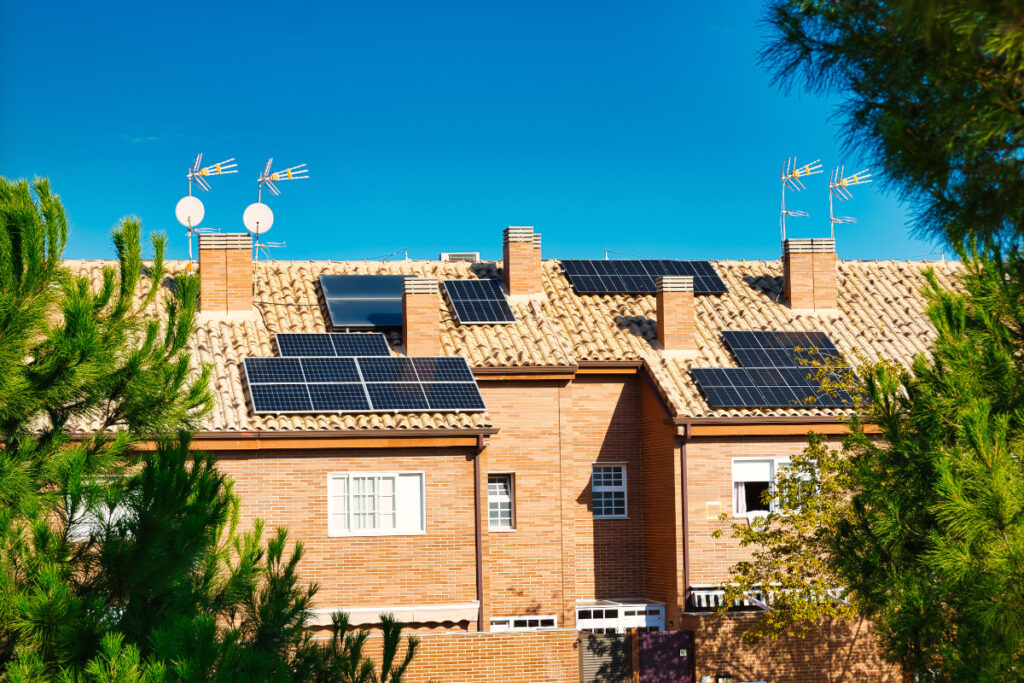Understand Your Current Energy Usage
Before exploring panels or battery storage options, it’s critical to understand how much energy your home uses on a monthly and annual basis.
-
Review at least 12 months of utility bills.
-
Look for peak usage months—usually summer and winter.
-
Note any high-consumption appliances like HVAC units, pool heaters, or EV chargers.
For example, a typical three-bedroom house in Florida may use 900–1,200 kWh per month. That energy demand will guide the size of your solar panel system and help determine the solar system cost savings over time.
Determine the Right System Size
Once you know your usage, the next step is system sizing. A solar power solution is measured in kilowatts (kW), which indicates its maximum power generation under optimal sunlight.
-
A small home might need a 4–6 kW system.
-
Larger properties may require 8–12 kW or more.
-
Consider future needs: Are you planning to buy an EV or add a new AC unit?
A properly sized system will generate enough electricity to match your usage, while also giving you the potential to store excess energy or feed it back into the grid through net metering and solar programs.
Explore Roof Space and Orientation
Your roof’s size, shape, angle, and orientation can affect how efficiently your solar panel system performs.
-
South-facing roofs (in the Northern Hemisphere) offer the best exposure.
-
Tilt angle should ideally match your location’s latitude.
-
Shade from trees, buildings, or chimneys can reduce efficiency.
If roof space is limited, a ground-mounted solar installation or a higher-efficiency panel model may be necessary to meet your home’s needs.
Evaluate Your Budget and Financing Options
A home solar installation requires upfront investment, but a well-planned system pays for itself over time through monthly energy savings and incentives.
Estimated costs:
-
5 kW system: $10,000–$15,000 before incentives
-
8 kW system: $16,000–$25,000
-
Battery storage (optional): $8,000–$15,000 per unit
Most U.S. homeowners qualify for the Federal Solar Tax Credit, which covers 30% of the solar system cost, and additional rebates may be available at the state or municipal level.
At Solargy Power Solutions, we help clients understand and access the best financing options, including:
-
Solar loans with low interest rates
-
Leasing and power purchase agreements (PPAs)
-
Local incentive programs
Decide Between Grid-Tied, Hybrid, or Off-Grid
There are three main types of solar energy systems for homes:
-
Grid-Tied Solar Systems
-
Connected to the utility grid
-
Ideal for homeowners who want bill reduction but don’t need battery storage
-
Allows for net metering and solar credit benefits
-
-
Hybrid Systems
-
Combine solar panels, battery storage, and grid access
-
Provide backup during outages and flexibility in energy management
-
Increasingly popular for regions with unstable grid service
-
-
Off-Grid Systems
-
Completely independent from the utility grid
-
Require significant battery capacity and backup generators
-
Best suited for remote or rural properties
-
Your choice depends on whether you prioritize savings, energy security, or full autonomy.
Consider Adding Battery Storage
A solar battery backup can store unused solar energy during the day for use at night or during blackouts. While not essential for all homes, storage adds:
-
Resilience during grid failures (especially in storm-prone areas)
-
Load shifting to reduce costs under time-of-use rate plans
-
Increased energy independence
Popular systems include Tesla Powerwall, Enphase, and Sonnen, which pair well with hybrid inverters and smart monitoring systems.
Optimize System Performance with Monitoring and Smart Controls
A complete solar power solution includes tools to help you track and optimize system performance.
-
Use a real-time monitoring system to review daily, weekly, and monthly energy data.
-
Consider integrating with energy management systems for smart scheduling (e.g., running appliances during peak solar generation).
-
Make adjustments over time to reduce waste and maximize efficiency.
These insights are key to ensuring your system delivers long-term cost savings and optimal performance.
Work with a Trusted Solar Energy Partner
Choosing the right installer is just as important as choosing the right equipment.
At Solargy Power Solutions, we provide:
-
Detailed site evaluations and system sizing based on your home’s needs
-
Customized designs with Tier 1 equipment
-
Guidance on incentives, permits, and utility approvals
-
Professional installation and support throughout the project
We have helped hundreds of homeowners across the U.S., Canada, and the Caribbean make informed decisions and achieve real savings through high-performance solar systems.
Choosing the right solar power solution is an investment in your home, your future, and the planet. By evaluating your energy usage, system size, roof suitability, and financing options, you can build a solar energy system that delivers reliable performance and reduces your electricity bill for decades to come.
Whether you’re just getting started or ready to install, the team at Solargy Power Solutions is here to help.
Contact us today to schedule a free consultation and let us help you choose the perfect solar system for your home.





